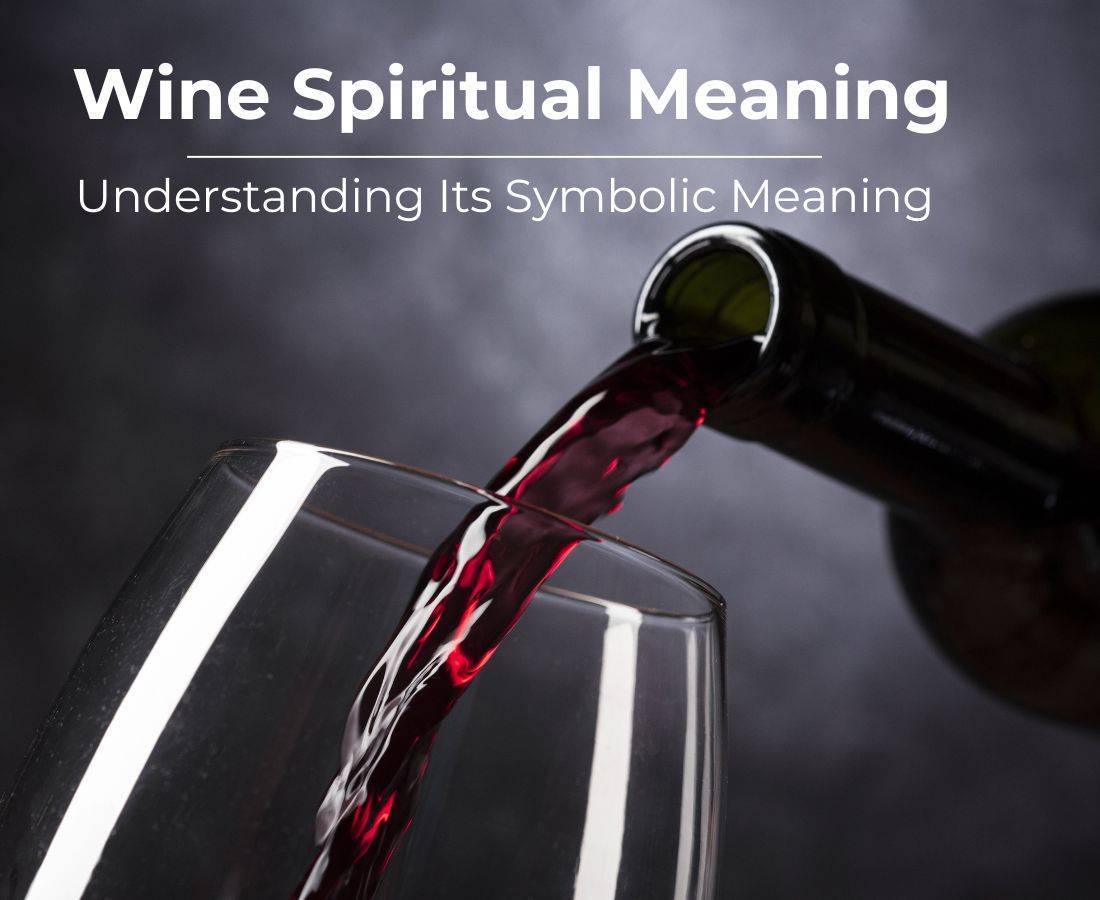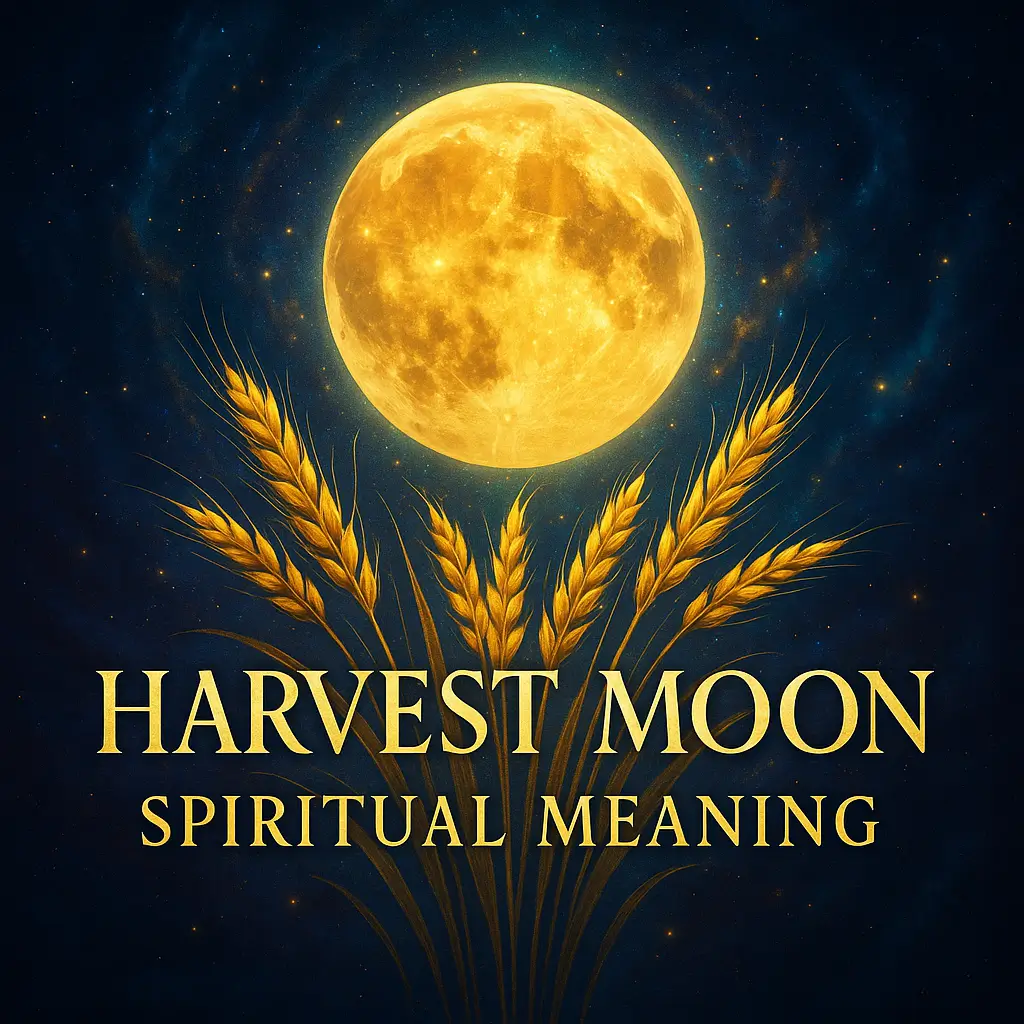The wine symbolic meaning has captivated human hearts for millennia. Imagine a goblet, not just filled with fermented grapes, but brimming with tales of friendship, transformation, and divine blessings.
This article uncovers the profound symbolism of wine, revealing how a simple beverage can embody complex human experiences. Dive in to explore how wine has mirrored our joys, sorrows, and spiritual quests, offering more than just a drink, but a reflection of life itself.
Table of Contents
- 1 Key Takeaways
- 2 Wine’s Spiritual Meaning
- 3 Historical Significance of Wine Through the Ages
- 3.1 Ancient Greece: Dionysian Celebrations
- 3.2 Roman Empire: A Symbol of Power and Wealth
- 3.3 Jewish Traditions: Ritual and Remembrance
- 3.4 Christianity: Sacred and Ceremonial
- 3.5 Medieval Europe: Monastic Mastery
- 3.6 Renaissance: Elite Indulgence
- 3.7 Victorian Social Etiquette
- 3.8 Prohibition Era: Rebellion in a Bottle
- 3.9 Table: Wine Origins & Symbolism
- 4 Spiritual and Dream Interpretations
- 5 What Your Favorite Wine Says About You
- 6 Symbolism of Wine in Culture and Art
- 7 Symbolic Creatures and Wine: Mythological Connections
- 8 Conclusion
- 9 FAQ
- 9.1 What symbolism does wine carry in different cultures?
- 9.2 How does wine preference reflect personality traits?
- 9.3 What does wine symbolize in dreams?
- 9.4 How is wine depicted as an artistic symbol?
- 9.5 What was wine’s significance during Prohibition?
- 9.6 How has wine symbolism evolved in modern times?
- 9.7 What role does wine play in transformation symbolism?
Key Takeaways
- Wine has served as a powerful symbol across diverse cultures for millennia, representing friendship, transformation, and spiritual connection.
- Throughout history, wine has embodied different meanings – from divine ecstasy in Ancient Greece to sacred blood in Christianity to rebellion during Prohibition.
- Your wine preference reflects aspects of your personality traits – Pinot Noir lovers tend to be sophisticated thinkers while Cabernet fans often possess leadership qualities.
- Wine in dreams carries significant symbolism – celebratory toasts suggest forthcoming success while spilled wine may represent missed opportunities.
- As a cultural artistic symbol, wine appears prominently in literature, visual arts, music, and film, consistently representing human experiences and emotions.
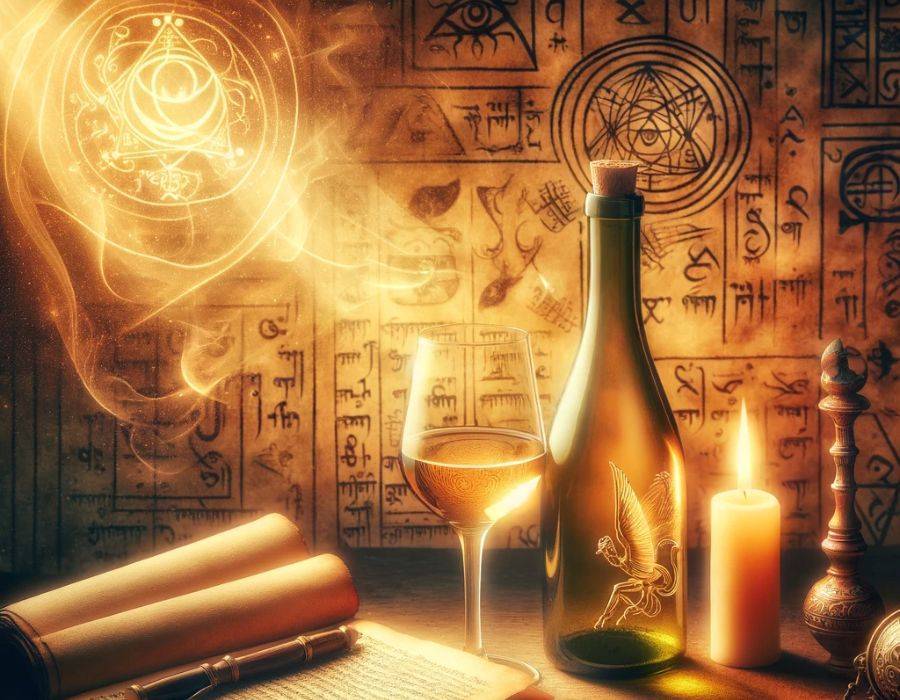
Wine’s Spiritual Meaning
Wine transcends its physical essence, embodying a rich tapestry of spiritual symbolism. Each sip carries centuries of tradition, reflecting deep emotional and spiritual values.
Friendship
In the realm of spirituality, wine symbolizes the deepening of friendships. It’s a catalyst for meaningful conversations and heartfelt connections. Historically, sharing a bottle of wine has been a way to celebrate bonds and create lasting memories.
This tradition continues, making wine a timeless symbol of camaraderie and trust.
Happiness
Wine is a beacon of happiness and celebration. Its presence at joyful occasions, from weddings to simple gatherings, highlights its role in amplifying happiness.
The act of toasting with wine is not just a celebration but a collective wish for happiness and prosperity, deeply ingrained in various cultures.
- Celebratory Toasts: Raising a glass to honor life’s joyful moments.
- Symbol of Good Fortune: Wine is often associated with luck and happiness.
Transformation
The transformation of grapes into wine is a metaphor for life’s changes. This process symbolizes personal growth, reflecting the journey from raw potential to refined elegance.
Like life, wine evolves, gaining complexity and depth over time, mirroring our own journey towards wisdom and maturity.
Blessing
Wine holds a sacred place in many religious and spiritual traditions. It’s seen as a vessel of divine blessing, used in rituals to symbolize sanctity and divine favor.
This symbolism spans across cultures, making wine a universal symbol of spiritual grace and communion.
- Sacred Rituals: Integral in religious ceremonies as a symbol of divine presence.
- Communion and Community: Uniting people in shared spiritual experiences.
Gluttony
Conversely, wine also represents gluttony and excess. It serves as a reminder of the dangers of overindulgence, often depicted in myths and stories.
This aspect of wine’s symbolism cautions against the loss of control and the importance of moderation in life.
Wine’s spiritual meanings are diverse, reflecting the complexities of human experience. From fostering friendships to serving as a cautionary symbol, wine’s symbolic significance is as rich and varied as its taste.
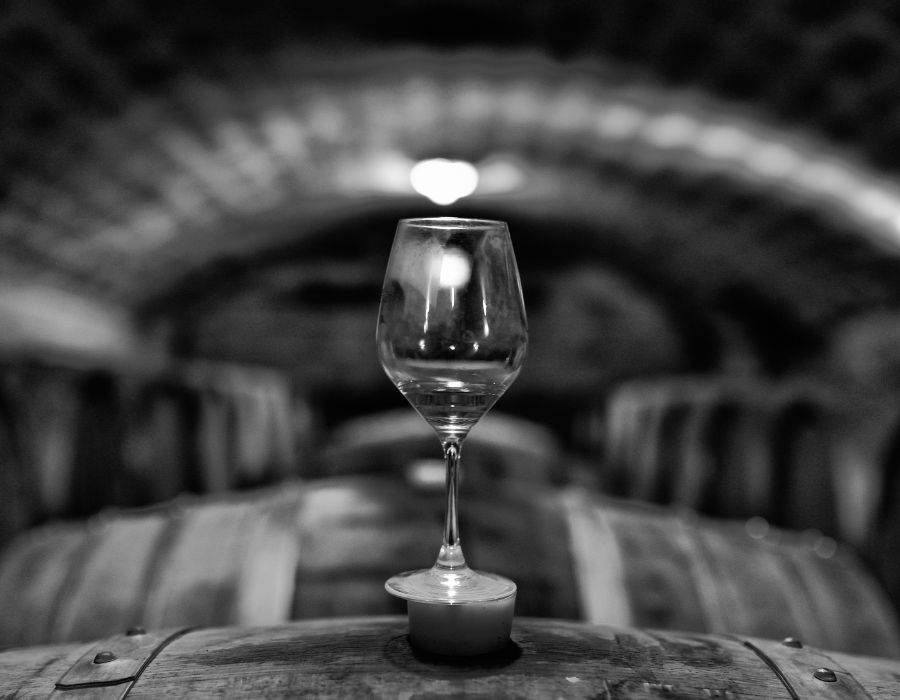
Historical Significance of Wine Through the Ages
Wine has been more than a mere beverage throughout history; it’s a symbol, a storyteller of cultures, and a witness to the evolution of civilizations. Let’s explore these rich historical tapestries where wine played a pivotal role.
Ancient Greece: Dionysian Celebrations
In the heart of Ancient Greece, wine was not just a drink but a divine elixir. Central to the worship of Dionysus, the god of wine, these celebrations were more than mere feasts.
They were rituals symbolizing ecstasy, spiritual liberation, and a break from the conventional. Dionysian festivals were a time when societal norms were turned upside down, and wine was the key that unlocked a world of mystical experiences and divine connection.
Roman Empire: A Symbol of Power and Wealth
The Roman Empire elevated wine to a status symbol, a luxury that spoke of power, wealth, and societal standing. Lavish feasts of the elite were incomplete without the finest wines, showcasing the empire’s prosperity and cultural sophistication.
In politics, wine was a tool for diplomacy and influence, a liquid currency that flowed through the veins of Roman society. It was a testament to the empire’s reach, bringing wines from conquered lands, and integrating them into the Roman lifestyle.
Jewish Traditions: Ritual and Remembrance
In Jewish history, wine has held a sacred place in religious ceremonies. During Passover, wine symbolizes freedom from slavery and divine blessing, playing a crucial role in the ritualistic remembrance of the Exodus.
It’s a symbol of joy and celebration, deeply intertwined with Jewish culture and traditions, reflecting the community’s resilience and faith.
Christianity: Sacred and Ceremonial
Christianity imbued wine with profound sacred symbolism. In the Eucharist, wine represents the blood of Christ, a cornerstone of Christian faith symbolizing sacrifice, redemption, and divine covenant.
This ritualistic use underscores wine’s spiritual significance, embodying the essence of Christian teachings and the profound mystery of faith.
Medieval Europe: Monastic Mastery
During the Middle Ages, monasteries were not just centers of religious devotion but also hubs of agricultural innovation, particularly in winemaking. Wine symbolized the monastic commitment to community service and self-sufficiency.
It was a testament to the monks’ mastery in winemaking, playing a crucial role in sustaining the monastic communities and contributing to the local economies.
Renaissance: Elite Indulgence
The Renaissance era saw wine as a symbol of cultural sophistication and affluence among the elite. It was an era where art, culture, and wine intertwined, with banquets featuring exotic wines to showcase the host’s wealth and taste.
Wine in the Renaissance was a reflection of the era’s pursuit of refinement, intellectual exploration, and the celebration of beauty in all its forms.
Victorian Social Etiquette
In Victorian society, wine was more than a drink; it was a symbol of social etiquette, distinguishing the aristocracy from the common folk. It was a staple in upper-class gatherings, symbolizing refinement, taste, and the complexities of social hierarchy.
Wine etiquette in Victorian times was a dance of manners and social norms, reflecting the era’s values and the subtleties of class distinctions.
Prohibition Era: Rebellion in a Bottle
During the Prohibition era in the United States, wine became a symbol of rebellion, a defiance against the strictures of the time. It represented the clash between traditional values and the burgeoning modern societal shifts.
Wine, in this era, was not just a forbidden fruit but a catalyst for social change, reflecting the undercurrents of a society in transition.
Table: Wine Origins & Symbolism
| Type of Wine | Origin | Symbolism |
|---|---|---|
| Pinot Noir | France | Elegance, Complexity |
| Chardonnay | Burgundy, France | Wealth, Sophistication |
| Cabernet Sauvignon | Bordeaux, France | Power, Prestige |
| Riesling | Germany | Tradition, Purity |
| Sangiovese | Italy | Passion, Italian Heritage |
| Shiraz | Australia | Boldness, Innovation |
| Malbec | Argentina | Adventure, Bold Flavors |
| Champagne | Champagne, France | Celebration, Achievement |
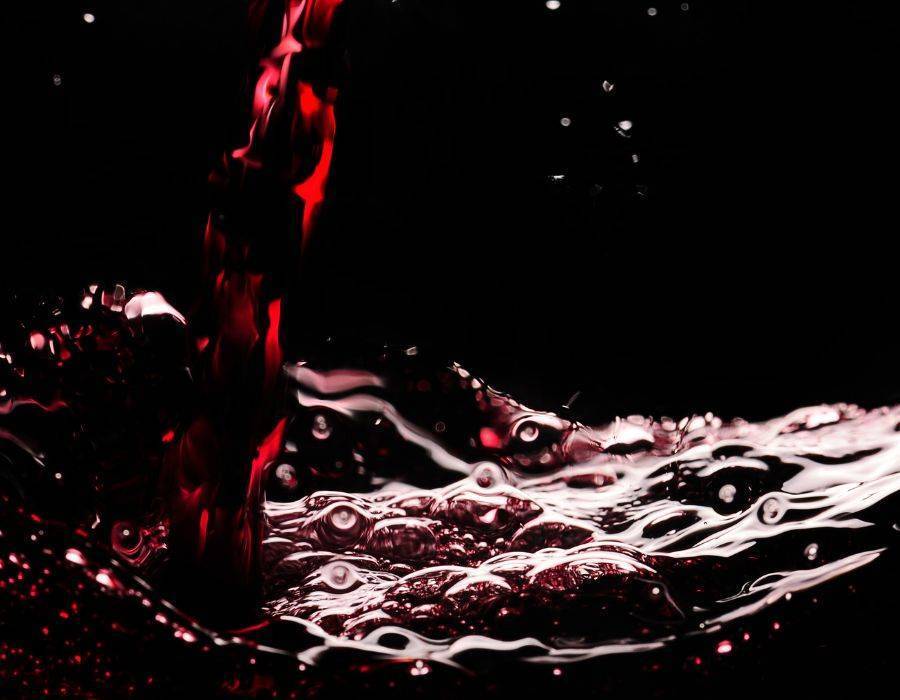
Spiritual and Dream Interpretations
Interpreting Wine in Dreams
Dreams, those enigmatic whispers from our subconscious, often cast wine in various roles, each scenario a vignette into our inner world. To interpret these wine dreams is to journey into the personal and subjective landscapes of our minds.
- Celebratory Wine: Dreams of toasting with wine often herald a forthcoming celebration or mirror personal triumphs. They reflect joy, achievement, and satisfaction in one’s life journey.
- Spilled Wine: Symbolizing fears of loss or missed opportunities, spilled wine in dreams plays on the themes of happiness’s fragility and life’s fleeting pleasures.
- Offering Wine: Presenting wine in a dream can signify a desire to share successes or joy. It’s a subconscious act of generosity, extending happiness to others.
- Refusing Wine: Refusing wine in a dream might indicate inner conflicts, perhaps a struggle with indulgence, self-restraint, or even aspects of one’s life that are being rejected.
- Searching for Wine: This scenario could symbolize a quest for fulfillment or a desire for more enriching experiences in life.
- Aged Wine: Dreaming of old or aged wine might represent wisdom, maturity, or the value of experiences accumulated over time.
- Broken Wine Bottle: Often a sign of disrupted plans or unfulfilled expectations, this dream can reflect the chaos or disappointments in one’s life.
- Tasting Various Wines: Such a dream might suggest exploration, trying new experiences, or making choices in life.
What Your Favorite Wine Says About You
Choosing a favorite wine is often more than a matter of taste; it’s a reflection of personality, style, and perhaps even your outlook on life. Let’s uncork the symbolism behind your preferred vino and discover what it might be whispering about you.
Pinot Noir: The Sophisticated Thinker
If Pinot Noir tops your list, you’re likely someone who appreciates complexity and subtlety. You’re a thinker, often reflective, and you enjoy delving into life’s intricate mysteries.
Your choice reflects a love for things that are both elegant and deeply layered.
Chardonnay: The Social Butterfly
Chardonnay lovers often enjoy the spotlight. You’re social, outgoing, and have a knack for making everyone feel welcome.
Your preference for this versatile wine speaks to your adaptable nature and your ability to thrive in various settings.
Cabernet Sauvignon: The Assertive Leader
Preferring a bold Cabernet Sauvignon suggests confidence and assertiveness. You’re a leader, unafraid of making decisions and standing by them.
Your wine choice mirrors your strength, depth, and ability to leave a lasting impression.
Riesling: The Creative Dreamer
If Riesling is your go-to, you might be on the dreamier side, with a creative and imaginative spirit. You appreciate the finer, sweeter things in life and have a youthful enthusiasm that’s infectious.
Merlot: The Easygoing Peacemaker
Merlot enthusiasts are often easygoing and approachable. You value harmony and are the peacemaker among your friends.
Your preference for this smooth, less tannic wine reflects your desire for balance and tranquility in life.
Sauvignon Blanc: The Adventurous Explorer
Lovers of Sauvignon Blanc tend to be adventurous and energetic. You’re likely to be someone who enjoys new experiences and isn’t afraid to step out of your comfort zone.
Your wine choice mirrors your zest for life and all its varied experiences.
Shiraz: The Mysterious Intense
Choosing Shiraz indicates a personality with depth and intensity. You’re likely passionate, with a mysterious side that others find intriguing.
Your wine choice suggests a preference for bold flavors and experiences.
Rosé: The Trendy Optimist
If Rosé is your favorite, you’re probably upbeat, trendy, and optimistic. You enjoy the lighter side of life and have a modern, forward-thinking approach. Your wine choice reflects your playful and stylish nature.
Symbolism of Wine in Culture and Art
Wine in Classical Literature
In classical literature, wine often symbolizes celebration, wealth, or moral teachings. For instance, in Homer’s “Odyssey,” wine represents hospitality and civilization. In contrast, in Shakespeare’s plays, it can signify both celebration (as in “Henry IV”) and excess or downfall (notably in “Macbeth”).
Wine in Visual Arts
In Renaissance paintings, such as Caravaggio’s “Bacchus,” wine symbolizes both earthly pleasures and divine connection. It is also used in religious art to represent the blood of Christ, as seen in numerous depictions of the Last Supper.
Wine in Modern Poetry and Music
In 20th-century poetry and music, wine often serves as a metaphor for life’s ephemeral pleasures and sorrows. Poets like Charles Baudelaire use wine to symbolize escape from reality, while in contemporary music, it can represent romance, heartache, or celebration, as seen in songs across various genres.
Wine in Film and Theatre
In modern cinema and theatre, wine often appears as a symbol of sophistication, conflict, or social status. It sets scenes for romance, celebration, or tension, reflecting the complexities of human relationships and societal norms.
Through these various forms of art and literature, wine has consistently served as a powerful symbol, representing a spectrum of human experiences, emotions, and cultural values.
| Category | Occurrence | Significance |
|---|---|---|
| Literature | Homer’s “Odyssey” | Wine as a symbol of hospitality and civilization. |
| Shakespeare’s “Macbeth” | Represents excess and downfall. | |
| Baudelaire’s Poetry | Wine as an escape from reality. | |
| Visual Arts | Caravaggio’s “Bacchus” | Symbolizes earthly pleasures and divine connection. |
| Renaissance depictions of the Last Supper | Represents the blood of Christ. | |
| Dutch Golden Age Still Lifes | Symbolizes wealth, opulence, and the transience of life. | |
| Music | Various Romantic Era Compositions | Wine as a symbol of passion and celebration. |
| Contemporary Pop Songs | Represents romance, heartache, or celebration. | |
| Jazz and Blues Genres | Often associated with sorrow and life’s hardships. | |
| Film | Various Romantic and Drama Films | Sets scenes for romance and sophistication. |
| Classic Hollywood Cinema | Used to depict social status and luxury. | |
| Modern Independent Films | Symbolizes complexity of human relationships and societal commentary. |
Music
- Romantic Era compositions: Works by composers like Schubert and Liszt that evoke the passion and celebration associated with wine.
- Contemporary pop songs: Songs like “Red Red Wine” by UB40.
- Jazz and Blues: Classic blues songs like “I’d Rather Go Blind” by Etta James, often invoking themes related to wine.
Film
- Romantic and Drama films: Like “Sideways,” which revolves around wine tasting and personal growth.
- Classic Hollywood Cinema: Films like “Casablanca,” where wine settings depict luxury and sophistication.
- Modern Independent Films: Movies like “A Good Year,” which explores life changes and personal connections through a vineyard setting.
Symbolic Creatures and Wine: Mythological Connections
Wine’s rich symbolism extends beyond human tradition into the realm of mythological creatures and spiritual symbols. The connection between wine and transformative creatures like the phoenix creates a fascinating tapestry of meaning that spans cultures worldwide.
The Phoenix and Wine: Symbols of Rebirth
The phoenix symbolism parallels wine’s transformative nature in remarkable ways. Like wine that transforms from humble grapes into something transcendent, the phoenix rises from its ashes into renewed splendor. In ancient traditions, wine ceremonies often accompanied phoenix mythology narratives, both representing the cyclical nature of life, death, and rebirth.
The deep crimson hues of red wine visually echo the fiery plumage associated with the phoenix rising, creating a symbolic connection that transcends mere coincidence. This visual parallel reinforced wine’s status as a transformative elixir in various spiritual practices.
Butterfly Symbolism in Wine Culture
The butterfly meaning spiritual transformation finds expression in wine culture through vineyard biodiversity. Many vineyards attract butterfly species, particularly the yellow butterfly, whose presence is considered auspicious. The butterfly’s metamorphosis mirrors wine’s transformation from grape to nectar, a parallel not lost on traditional winemakers who saw these delicate creatures as omens of exceptional vintages.
In some traditions, a butterfly landing on a wine glass symbolizes blessing and transformation, connecting the symbolic worlds of insect symbolism with viticulture practices dating back centuries.
Spiritual Animal Guides in Wine Traditions
Various cultures associate specific animal symbolism with wine ceremonies. The owl spiritual meaning of wisdom complements wine’s association with insight and reflection, while the dragonfly represents joy and lightness – qualities celebrated in wine festivities. Vineyard owners often welcome these creatures, seeing them as spiritual guardians of their crops.
The peacock symbolism of beauty and immortality appears in wine vessel decorations across cultures, particularly in Mediterranean traditions where the magnificent bird represented the divine nature of wine itself. Similarly, the eagle feather was sometimes used in wine blessing ceremonies to invoke strength and spiritual elevation.
Ladybug Symbolism in Vineyards
The ladybug meaning in vineyard ecosystems transcends mere agricultural benefit. Ladybug symbolism in wine-growing regions represents divine protection and good fortune. Vintners across Europe have long considered the presence of ladybirds on grapevines as a sign of blessed harvests and exceptional wine production.
Modern biodynamic wine producers often incorporate ladybug spiritual meaning into their philosophy, viewing these beneficial insects as symbolic guardians that represent the harmonious relationship between nature and viticulture, embodying the symbol of healing for vineyard ecosystems.
Wine’s Connection to Perseverance Symbols
Wine embodies the perseverance symbol through its lengthy maturation process. The patience required to transform grapes into fine wine mirrors the journey of spiritual growth and transformation. Like the phoenix rising after destruction, vineyards that survive harsh conditions often produce the most character-filled wines, becoming living symbols of resilience.
Across traditions, wine serves as a symbol for change and endurance, reminding us that transformation often requires time and patience. This perspective has found its way into spiritual awakening movies on Netflix that use wine imagery to represent characters’ transformative journeys.
Wine’s symbolic relationship with these powerful animal totems and transformative creatures enriches our understanding of its cultural significance. Beyond mere beverage, wine becomes a living bridge between human experience and the natural world’s profound symbolic language, connecting us to ancient wisdom traditions that recognized the sacred in the everyday.
Conclusion
Wine is a symbol deeply entwined with human experience. It reflects our joys, sorrows, and spiritual journeys, transcending time and culture.
From its role in friendship and celebration to its representation of transformation and caution, wine embodies the complexities of life.
Your favorite wine, whether a bold Shiraz or a subtle Riesling, reveals a part of your personality and perspective on life. In every glass, there’s a story of human legacy and culture, a tradition cherished through the ages.
As you savor wine, you’re not just enjoying a drink but connecting with a rich, historical tapestry.
When you had too much wine, you might get hiccups; see their symbolic meanings.
FAQ
What symbolism does wine carry in different cultures?
Wine symbolizes various concepts across cultures, including friendship, celebration, transformation, and spiritual connection. In Ancient Greece, it represented divine ecstasy, while in Christianity, it symbolizes sacred blood. Throughout history, wine has embodied different meanings depending on cultural context and historical period.
How does wine preference reflect personality traits?
Your wine choice often mirrors your personality. Pinot Noir enthusiasts tend to be sophisticated, analytical thinkers. Cabernet Sauvignon lovers typically possess leadership qualities and confidence. Merlot fans are usually approachable and agreeable, while Champagne drinkers often exhibit extroverted, celebratory personalities.
What does wine symbolize in dreams?
In dreams, wine often represents celebration, transformation, or emotional states. Toasting with wine suggests upcoming success or recognition. Spilled wine may indicate missed opportunities or emotional spillover. Red wine can symbolize passion or vitality, while white wine might represent clarity or purity.
How is wine depicted as an artistic symbol?
Wine appears prominently across artistic mediums as a symbol of human experience. In literature, it often represents truth or revelation. Visual arts use wine to symbolize abundance and pleasure. In film and music, wine frequently embodies sophistication, indulgence, or emotional transformation.
What was wine’s significance during Prohibition?
During Prohibition (1920-1933), wine became a powerful symbol of rebellion and resistance against government control. Despite being illegal, wine consumption continued in speakeasies and private homes, representing personal freedom and cultural identity for many immigrant communities who viewed wine as an essential part of their heritage.
How has wine symbolism evolved in modern times?
In contemporary culture, wine has evolved to symbolize sophistication, mindfulness, and connection. The rise of wine appreciation communities reflects our desire for authentic experiences and knowledge. Wine tourism has transformed vineyards into symbolic pilgrimage sites where people seek both cultural understanding and personal transformation.
What role does wine play in transformation symbolism?
Wine embodies transformation through its creation process—grapes undergo fermentation to become something entirely new. This physical transformation parallels spiritual and emotional metamorphosis in many traditions. The aging process of fine wines also symbolizes how time and patience can develop depth and character in both wine and people.
